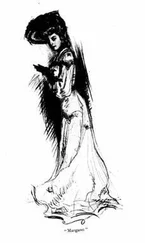James Cabell - The Cords of Vanity. A Comedy of Shirking
Здесь есть возможность читать онлайн «James Cabell - The Cords of Vanity. A Comedy of Shirking» весь текст электронной книги совершенно бесплатно (целиком полную версию без сокращений). В некоторых случаях можно слушать аудио, скачать через торрент в формате fb2 и присутствует краткое содержание. Жанр: Современная проза, на английском языке. Описание произведения, (предисловие) а так же отзывы посетителей доступны на портале библиотеки ЛибКат.
- Название:The Cords of Vanity. A Comedy of Shirking
- Автор:
- Жанр:
- Год:неизвестен
- ISBN:нет данных
- Рейтинг книги:3 / 5. Голосов: 1
-
Избранное:Добавить в избранное
- Отзывы:
-
Ваша оценка:
- 60
- 1
- 2
- 3
- 4
- 5
The Cords of Vanity. A Comedy of Shirking: краткое содержание, описание и аннотация
Предлагаем к чтению аннотацию, описание, краткое содержание или предисловие (зависит от того, что написал сам автор книги «The Cords of Vanity. A Comedy of Shirking»). Если вы не нашли необходимую информацию о книге — напишите в комментариях, мы постараемся отыскать её.
The Cords of Vanity. A Comedy of Shirking — читать онлайн бесплатно полную книгу (весь текст) целиком
Ниже представлен текст книги, разбитый по страницам. Система сохранения места последней прочитанной страницы, позволяет с удобством читать онлайн бесплатно книгу «The Cords of Vanity. A Comedy of Shirking», без необходимости каждый раз заново искать на чём Вы остановились. Поставьте закладку, и сможете в любой момент перейти на страницу, на которой закончили чтение.
Интервал:
Закладка:
"The shelter of a tree—" I began, looking doubtfully into the garden, which had any number of trees.
"The very thing," she assented. "There is a splendid oak yonder, just half a block up the street." And she graciously pointed it out.
I regarded it with disapproval. "Such a rickety old tree," I objected, sulkily.
Followed a silence. She bent her head to one side, and looked up at me. She was now grave with a difference. "A strolling actress isn't supposed to be very particular, is she?" asked Miss Montmorenci. "She wouldn't object to a man's coming by night and trying to scrape acquaintance with her,—a man who wouldn't think of being seen with her by day? She would like it, probably. She—she'd probably be accustomed to it, wouldn't she?" And Miss Montmorenci smiled.
And I, on a sudden, was abjectly ashamed of myself. "Why, you can't think that of me!" I babbled. "I—oh, don't think me that sort, I beg of you! I'm not—really, I'm not, Miss Montmorenci! But I admired you so much to-night—I—oh, of course, I was very silly and very presumptuous, but, really, you know—"
I paused for a little. This was miles apart from the glib talk I had designed.
"My name is Robert Townsend," I then continued; "I am staying at Mr. Charteris's place, just outside of Fairhaven. And I am delighted to meet you, Miss Montmorenci. So now, you see, we have been quite properly introduced, haven't we? And, by the way," I suggested, after a moment's meditation, "there is a very interesting old college here— old pictures, records, historical association and such like. I would like to inspect it, vastly. Can't I call for you in the morning. We can do it together, if you don't mind, and if you haven't already seen it. Won't you, Miss Montmorenci? You really ought to see King's College, you know; it is quite famous, because I was educated there, and no end of other interesting things have happened within its venerable confines."
She had drawn close to the hedge. "You really mean it?" she asked. "You would walk through the streets of this Fairhaven with me—with a barn-stormer, with a strolling actress? You'd be afraid!" she cried, suddenly; "oh, yes, you talk bravely enough, but you'd be afraid, of course, when the time came! You'd be afraid!"
I had taken the hat, but my head was still uncovered. "I don't think," said I, reflectively, "that I am afraid of many things, somehow. But of one thing I am certainly not afraid, and that is of mistaking a good woman for—for anything else. Their eyes are different somehow," I haltingly explained, as to myself; then I smiled. "Shall we say eleven o'clock?"
Miss Montmorenci laid one hand upon the hedgetop and slowly twisted off four box-leaves what while I waited. "I—I believe you," she said, in' meditation; "oh, yes, I believe you, somehow, Mr. Townsend. But we rehearse in the morning, and there is a matinee every day, you know, and—and there are other reasons—" She paused, irresolutely. "No," said Miss Montmorenci, "I thank you, but—good night."
"Oh, I say! am I never to see any more of you?"
A century or so of silence now. Her deliberation seemed endless.
At last: "Matinees and rehearsal keep us busy by day. But I am boarding here for the week, and—and I rest here in the garden after the evening performance. It is cool, it—it is like a glass of water after taking rather bitter medicine. And you aren't a bad sort, are you? No; you look too big and strong and clean, Mr. Townsend. And, besides, you're just a boy—"
"In that case," cried Mr. Townsend, "I shall say goodnight with a light heart." And I turned to go.
"A moment—" said she.
"An eternity," I proffered.
"Promise me," she said, "that you will not come again this week to the Opera House."
My brows were raised a trifle. "I adore the drama," I pleaded.
"And I loathe it. And I act very badly—hopelessly so," said Miss Montmorenci, with an indolent shrug; "and, somehow, I don't want you to see me do it. Why did you mind my calling you a boy? You are , you know."
So I protested I had not minded it at all; and I promised. "But at least," I said, triumphantly, "you can't prevent my remembering Juliet!"
She said of course not, only I was not to be silly.
"And therefore," quoth I, "Juliet shall be remembered always." I smiled and waved my hand. " Au revoir , Signorina Capulet," said I.
And I took my departure. My blood rejoiced, with a strange fervor, in the summer moonlight. It was good to be alive.
7. He Goes Mad in a Garden
1
"And, oh, but it is good to be with you again, Signorina!" cried I, as I came with quick strides into the moonlit garden. I caught both her hands in mine, and laughed like an ineffably contented person. There was nothing very subtle about the boy that then was I; at worst, he overacted what he really felt; and just at present he was pleased with the universe, and he saw no possible reason for concealing the fact.
It was characteristic, also, that she made no pretence at being surprised by my coming. She was expecting me and she smiled very frankly at seeing me. Also, in place of the street dress of Tuesday, she wore something that was white and soft and clinging, and left her throat but half concealed. This, for two reasons, was sensible and praiseworthy; one being that the night was warm, and the other that it really broadened my ideas as to the state of perfection which it is possible for the human throat to attain.
2
"So you don't like my stage-name?" she asked, as I sat down beside her. "Well, for that matter, no more do I." "It doesn't suit you," I protested—"not in the least. Whereas, you might be a Signorina Somebody-or-other, you know. You are dark and stately and—well, I can't tell you all the things you are," I complained, "because the English language is so abominably limited. But, upon the whole, I am willing to take the word of the playbill,—yes, I am quite willing to accept you as Signorina Capulet. She had a habit of sitting in gardens at night, I remember. Yes," I decided, after reflection, "I really think it highly probable that you are old Capulet's daughter. I shall make a point of it to pick a quarrel as soon as possible, with that impertinent, trespassing young Montague. He really doesn't deserve you, you know."
Unaccountably, her face saddened. Then, "Signorina? Signorina?" she appraised the title. "It is rather a pretty name. And the other is horrible. Yes, you may call me Signorina, if you like."
3
She would not tell me her real name. She was unmarried,—this much she told me, but of her past life, her profession, or of her future she never spoke. "I don't want to talk about it," she said, candidly. "We play for a week in Fairhaven, and here, once off the stage, I intend to forget I am an actress. When I am on the stage," she added, in meditative wise, "of course everyone knows I am not."
I laughed. I found her very satisfying; she was not particularly intelligent, perhaps, but then I was beginning to consider clever women rather objectionable creatures. There was a sufficiency of them among the Charteris house-party—Alicia Wade, for instance, and Pauline Ashmeade and Cynthia Chaytor,—and I thought of them almost resentfully. The world had accorded them not exactly what they most wanted, perhaps, but, at least, they had its luxuries; and they said sharp, cynical things about the world in return. In a woman's mouth epigrams were as much out-of-place as a meerschaum pipe.
Here, on the contrary, was a woman whom the world had accorded nothing save hard knocks, and she regarded it, upon the whole, as an eminently pleasant place to live in. She accepted its rebuffs with a certain large calm, as being all in the day's work. There was, no doubt, some good and sufficient reason for these inconveniences; not for a moment, however, did she puzzle her handsome head in speculating over this reason. She was probably too lazy. And the few favours the world accorded her she took thankfully.
Читать дальшеИнтервал:
Закладка:
Похожие книги на «The Cords of Vanity. A Comedy of Shirking»
Представляем Вашему вниманию похожие книги на «The Cords of Vanity. A Comedy of Shirking» списком для выбора. Мы отобрали схожую по названию и смыслу литературу в надежде предоставить читателям больше вариантов отыскать новые, интересные, ещё непрочитанные произведения.
Обсуждение, отзывы о книге «The Cords of Vanity. A Comedy of Shirking» и просто собственные мнения читателей. Оставьте ваши комментарии, напишите, что Вы думаете о произведении, его смысле или главных героях. Укажите что конкретно понравилось, а что нет, и почему Вы так считаете.



